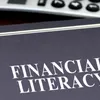Most of the common people cannot afford the lifestyle they dream of. They are always struggling to make ends meet. Those lucky enough to find a decent source of income also find a way to swell their financial burden with credit card bills, monthly car instalments, EMIs on expensive utilities, etc.
As the burden gets worse, it hamstrings the ability of a person, and their close ones, to live with freedom. They abstain from developing themselves, pursuing their passion or honing their skills – their growth gets stunted under the budgetary pressure. The root cause of all this is lack of financial literacy.
In general, a person would spend the first quarter of their lives on education and the later part on making a living off the skills acquired from their education. However, none of the educational institutions teach us how to manage our hard-earned money.
Lack of financial education is a global issue and no single entity can be blamed. Everyone – parents, schools, and government – need to work together to educate the next generation, and make sure that they don’t make any misinformed decisions and incorrect investments owing to the lack of financial know-how.
We don’t want to lose our freedom again, do we?
What is financial education?
Financial education is the knowledge to understand the basic financial principles and apply them in our day-to-day life. It is the ability to make sound financial decisions by knowing the right amount and place to invest and manage money.
Financial literacy allows people to make more informed decisions like taking educational loans, buying a home, financing a car, and saving for retirement and ultimately become financially self-sustainable and independent.
What is deficiency or lack of financial education?
Failing to understand the basic financial principles such as how to make a cash flow statement or budget planning in order to understand, grow, negotiate money in daily life and manage financial risk is financial illiteracy.
Why is it a national challenge?
The job market in India is more saturated than ever. It’s not that we don’t have jobs, but we don’t have any job-ready people. There is absolutely no space left for mediocrity. If you were a mediocre graduate in the 90s, you would still find a decent job by showing your degree. But the oil-well of such degree-education is already overmined.
More than a million engineers are manufactured in India every year – “manufactured” because most of them do it so mechanically. The problem isn’t limited to the engineering stream – it’s the same with commerce, arts or medical. A student’s real interests are disconnected from their field of study. As soon as youngsters complete their undergraduate degree, they feel obliged to take up higher education and travel to the US/Germany/Canada – those typical masters’ destinations.
Some students sign their indentured servitude by taking millions of rupees in education loans and falling into a snowballing debt. If they are lucky enough to find a job, they serve their years with some MNC, and by the time they are free, a gifted dancer becomes an HR generalist, a passionate cricketer becomes a software developer, and a prolific writer becomes a consulting professional.
Why do people feel compelled to take up a stream of education without having any interest in it? The answer is simple – money. The mindset of one’s degree governing one’s financial well-being has been hammered in to us since the school days.
Complete degree > Get a job > Earn salary is a standard career template. Higher the degree, higher is the salary. The interests of an individual while getting this degree are unimportant, or at best, secondary. Primary are always the vested interests.
People are willing to give up on their calling for the security of a joyless job. Well, nothing wrong with it, it can be an individual choice. But the problem is that most people don’t even know that they have a choice. They have never known other ways of earning and growing their money.
Most millennials of this generation are perpetually stressed-out and over-worked. They struggle with managing their cost of living. This affects their mental well-being and happiness. They lack the financial know-how, which is as important as vitamins for a healthy life, and there is a serious deficiency in India.
Another collateral damage of such a learning-for-earning mentality is lack of employment. Students who are not interested in a stream of education are less likely to excel in it. Their heart is always elsewhere. Their focus is divided. They are simply not interested. Period. Naturally, the overall quality of our graduates becomes substandard, and who would want to employ such graduates?
India desperately needs professionals who are skilled in their domains and can solve problems – well, we got hundreds of them. But if our youngsters aren’t utilising education to hone their inherent set of skills, the output is just a mass production of knuckleheads. We are in a crisis. Unemployment is a direct result of not taking education with the purpose of learning.
How do we solve this? What can be done on a personal level?
To the root of this crisis is a sheer lack of financial education, and there lies our solution.
Everyone has been gifted with a special set of skills by birth. These skills enable an individual to get an edge over the others. Be it Sachin Tendulkar in cricket, Shankar Mahadevan with singing, or Shashi Tharoor with words – all of them worked hard and honed their inherent skills with a relevant “education”.
To be clear, education is defined as an acquisition of knowledge, skills, values, beliefs, or habits in a particular subject. And I believe that this education, in the real sense of its meaning, is of utmost importance for an individual’s growth and development, and consequently that of a country’s growth and development.
One needs to identify their passion, and work on honing it; education should be seen as a tool for it.
Now, that’s all good in theory. But let’s say, my passion isn’t likely to pay the bills. I am a good writer, but no one would read my books as of now. I am a developing singer, but no one would pay to hear me as of now. Does that strike a chord? Well, yes, that’s a fair conundrum. What to do in such cases?
First, let me tell you what you shouldn’t do. Don’t make a bad investment of your time or money. Don’t let yourself into a snowballing debt just to acquire a piece of paper. Your passion and source of income can be different. You don’t always need a degree to earn money.
Now, let me tell you what to do. The key to lead a financially stress-free life is in INVESTMENTS. Investments of both time, and money. Make yourself savvy with some of the basic financial principles of how money works. Read books based on financial education. Learn how to make money work for you. Understand how taxes work. Find out more about real estate. Write your cash flow statement.
Start looking at “investments” that you can do. In all fairness, please also consider “education” itself as an investment. At the end of the day, make sure to invest your time/money into workstreams that really matter to you.
Though financial illiteracy is a national problem, we can easily overcome this situation with a little effort and help from the government. It is high time that the education system incorporates financial education as a mandatory subject on a college level, but it will not happen soon. Until then, we have to take charge and responsibility for ourselves.
It is important that we develop an eye for good investments of our time and money. Only then can we put things in perspective and start looking at education itself as an investment and be the judge of whether it’s a good or bad one in a given case. The future will belong to talents – talents honed by relevant education, motivated by passion and backed by financial literacy.
(Disclaimer: The views and opinions expressed in this article are those of the author and do not necessarily reflect the views of YourStory.)
Link : https://yourstory.com/2020/11/deficiency-financial-education-national-challenge-solutions
Author :- Rhushikesh Dadhe ( )
November 20, 2020 at 07:46PM
YourStory


